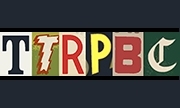1961 Tolkien letter explaining why no sequel to Lord of the Rings
Hi all,
I came across this article today which some might find interesting...
https://www.somersetlive.co.uk/news/somerset-news/letter-reveals-jrr-tolkien-would-2710794
I particularly liked this sentence from the letter: "it is the end of the kind of world about which I write: the twilight in which mythology and history are blended. After that there is only history".
I'm not altogether sure that I agree with his position - I tend to think that both mythology and history are both constantly with us - but it does sum up very succinctly where he was coming from.

 Help offset server costs by donating. This is totally optional. Any overages will go to library fines or new books.
Help offset server costs by donating. This is totally optional. Any overages will go to library fines or new books.

Comments
Thanks for bringing this forward. I think I understand what he is meaning to say (e.g. no story has any end, no picture a frame), but I too disagree with what he has said. Perhaps it's because he is writing to a young person.
I also think it is interesting that his analogy suggests that seeing only by history happens at night / in darkness. I think this view is becoming an ever more common intuition.
I agree with your point that history is never free of mythology, even what passes for "current events". I seem to recall reading that he had started on a story set in the Fourth Age of Middle Earth and stopped after about 30 pages because it became too depressing. With only Men left in the world, they had to become the forces of evil themselves. It kind of highlights a boundary on that sort of secondary world fiction.
Maybe it is too early for me to make any sense of this next thought, but it kind of seems analagous to the Bible. If LotR is like the New Testament, fulfilling all the promise of the backstory (aka, the Old Testament/Silmarillion) then there's nothing left to write. From that view, anything after the first century AD are just footnotes.
I have read that abortive sequel, set in the reign of King Elessar and Arwen Undomiel's son, and I agree it is grim. One could work with that - it reminded me of Lewis' That Hideous Strength is some odd ways, but it wasn't Tolkien, and I understand why he dropped it!
I've also read what was written for the planned sequel. I can see why he turned to the First Age rather than the Fourth. He was sort of in a corner...if the end of the Third Age is where the magic is fading, the Fourth Age is where it has now faded, both the good and the bad, and only remnants are left. It would be very different to everything before if it kept with the themes.
I'd still like to have read the rest of the sequel had he continued though.
Yes, @Apocryphal - The Peoples of Middle Earth. Coincidentally I am currently re-reading it - the book, I mean.